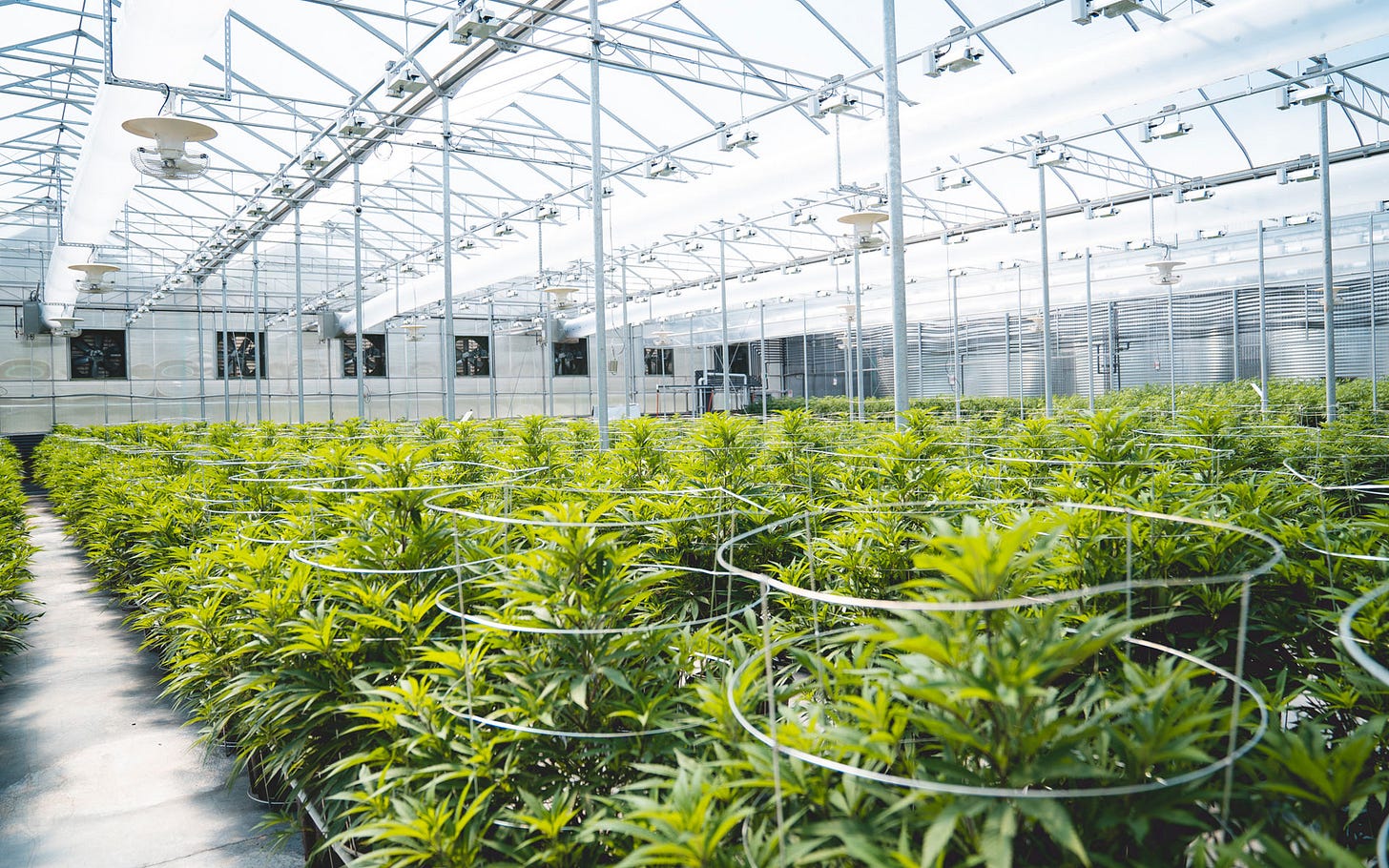The Cannabis Software Startup Growing At 800%
"Cannabis-focused businesses have to run as innovatively and efficiently as our counterparts in more established industries if we’re going to survive."
Friends,
When Canada finally legalized cannabis on October 17th, 2018, the most common story in every major news outlet was the lack of legal cannabis available.
This lack of supply had many downstream effects, such as causing many Canadian provinces to limit the number of licenses they could issue.
Even this wasn’t enough, ultimately, and many stores had to temporarily close their doors due to the lack of any available products that they could sell.
Fast forward to today and the opposite is true, with reports that the current supply of legal cannabis here in Canada exceeds consumer demand by a factor of 10. Now producers are seeking to capture any competitive advantages that might be available.
For today’s publication of Four PM, I had the pleasure of interviewing Amar, the CEO of Elevated Signals, a Canadian software company that provides cannabis producers like Tantalus Labs, Pure Sunfarms, and Aurora cannabis a competitive edge in the form of data-driven software solutions.
That's a fancy way of saying they build manufacturing and seed-to-sale software for cannabis producers who want to spend less time battling paperwork and spreadsheets, and more time focused on producing high-quality cannabis.
Amar Singh is a UBC graduate and is currently the Co-Founder & CEO of Canadian cannabis software company Elevated Signals.
What was the motivation to build Elevated Signals?
I've always been interested in the intersection between natural science and information technology. I’m a strong believer that the application of exponential technologies can help solve major crises of our time including food, water, and ecological security - and I wanted to build a business that would, in some way, help address these issues.
Specific to the work we’re doing today, the licensed cannabis industry is new so it has been a great opportunity to modernize antiquated parts of agriculture and manufacturing technology to help producers thrive.
Personally, I want to see a vibrant marketplace of top tier products in Canada and I love that our technology is now contributing to that.
The bigger picture is that as climate conditions become increasingly unpredictable, energy and water resources become ever more scarce, and as populations in urban and harsh environments expand, agri-tech is becoming essential to global food security. Our systems, initially driven forward by cannabis, can play a leading role in helping remote communities and developing economies leapfrog conventional food production paradigms.
Cannabis Content For Cannabis Professionals
How important has your relationship with Tantalus Labs proven?
Tantalus Labs was the trigger for Elevated Signals' genesis and the team there has been instrumental in helping us scope out the specifications for our software. For over a year we’d visit the SunLab almost weekly, collect information, and take it back to our workspace to code up. Then we’d go back and test out the prototypes...and repeat.
The relationship gave us an inside look at a modern Canadian cannabis company, one that has a digital-first, data-oriented vision. We were able to craft our software around their evolving wishlist - most of the software being marketed to cannabis producers today was not built in this way.
Alongside being an ongoing development partner, Dan Sutton and the rest of the Tantalus team are our great friends and collaborators that continue to support us as we scale.
(📸 / Tantalus Labs)
What’s one policy change you think could have a significant positive impact on the cannabis industry?
From an industry optimization perspective, I would like to see Health Canada move away from its current manual system of inspectors spending hours on-site reviewing paper records. Letting producers fulfill their compliance requirements by maintaining and submitting batch production records digitally, and in a standardized format, would save copious amounts of time and taxpayer money.
More generally, the economic and cultural status of the industry would be massively improved if the rules around access for purchase and consumption were changed to be similar to alcohol.
Adults should be able to enjoy the plant in whatever cultural setting suits them - whether that’s festivals, tasting lounges, or at the farm where the product was made - the current restrictions risk setting the Canadian industry up for failure, as the rest of the world catches up.
Let’s build an industry that thrives with incredibly designed spaces to sample and enjoy the great new products hitting the market - without feeling like you’re at a pharmacy. And let’s allow companies to shout about the nuances of products they’ve crafted with care so that they can stand out.
What’s the most important lesson you’ve learned since joining the cannabis industry four years ago?
That being number one, sadly, doesn’t last forever.
We’ve seen waves of companies come and go, with some of the biggest production houses falling from the top and technology companies with large market share losing customer confidence.
There is no resting on your laurels and there is no room for inferior products. Cannabis-focused businesses have to run as innovatively and efficiently as our counterparts in more established industries if we’re going to survive.
👉 If you enjoyed reading this interview, feel free to share it with friends!
… For more like this, make sure to sign up here:



